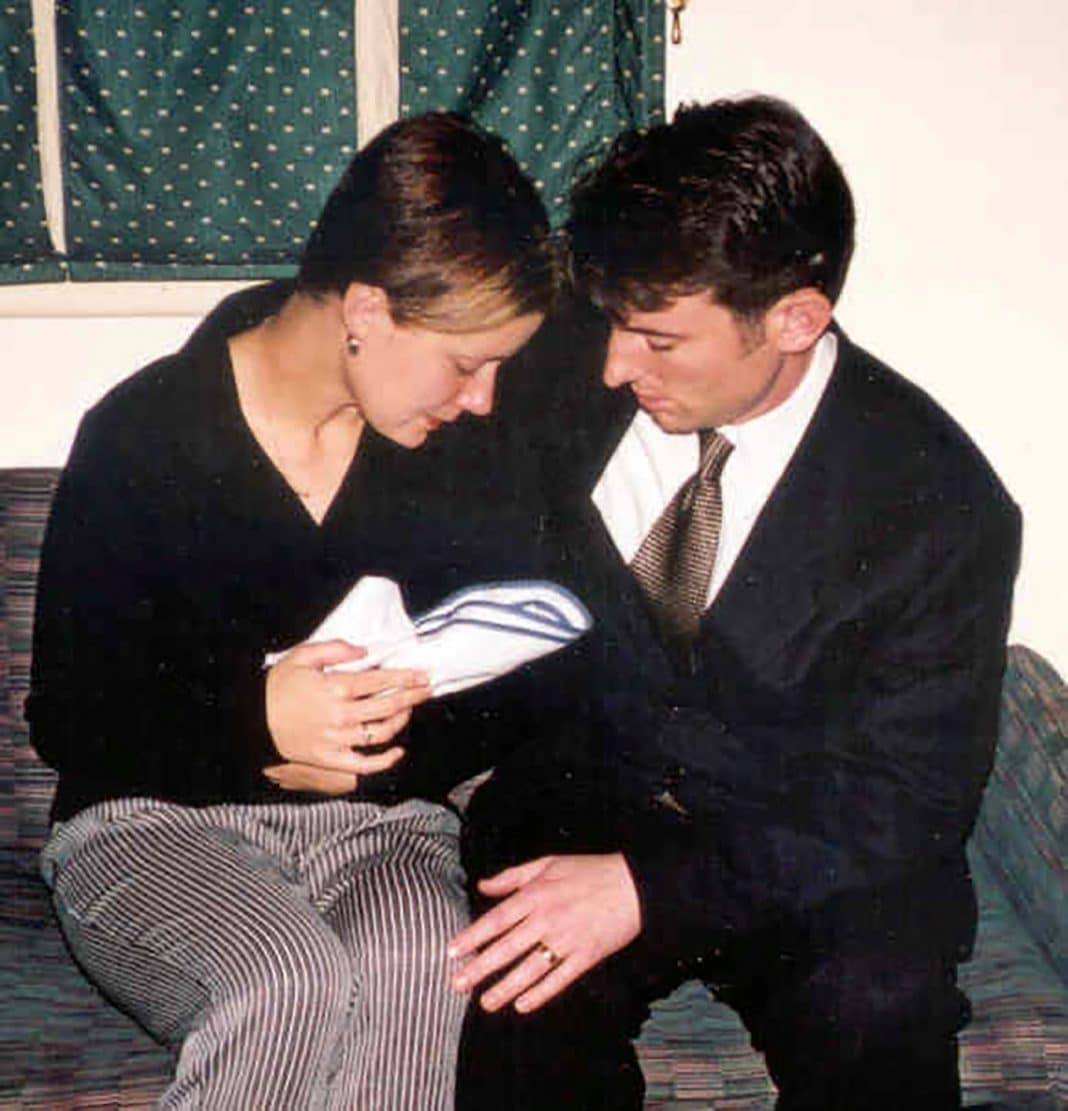The recollection of lowering her tiny daughter’s coffin into a cold grave is forever etched in Kristina Keneally’s memory.
“I remember just this overwhelming sense that that was it,” she says.
“That was the sum total of her life right there.”
Caroline, her second child, had been born a few days earlier. She never took a breath.
Twenty-two years on, the former NSW premier and current Labor Senator is leading the push for better support systems for parents who experience pregnancy loss.
The past year has brought progress.
In November, the federal government legislated to ensure parents who experience stillbirth – the death of a baby after 20 weeks of pregnancy – can access the same amount of unpaid leave as any parent.
And last week, it announced it would amend the Fair Work Act again, this time to include miscarriage – the loss of a baby before 20 weeks – in the country’s bereavement leave policy, giving them two days paid leave.
Some employers go further.
In last week’s budget, NSW announced public sector employees would be entitled to five days’ paid miscarriage leave, while Queensland has since 2001 offered 14 weeks of paid parental leave to employees whose children are stillborn.
The Commonwealth Bank and Woolworths Group are among those leading the way in the corporate sector.
Parents covered by the government’s Paid Parental Leave Scheme, earning under a certain threshold, can also access equal leave entitlements if their baby is stillborn.
But advocates say many parents who experience pregnancy loss are still falling through the gaps.
Plenty still cannot take the time they need to physically and mentally recover without financial hardship.
The imbalance stems from a lack of understanding of the impact of pregnancy loss, Ms Keneally says.
“It cleaved my life into a before and after.”
She was on the ultrasound table when her doctor told her Caroline would die.
“You think, ‘Maybe they go t it wrong. If they keep looking, they’ll see that my baby will be ok’.”
Ms Keneally then had to be induced.
For most parents, the intense physical demands of birth are offset by joy at the end.
Instead Ms Keneally and husband Ben were handed their lifeless daughter and given a few precious days to make “a lifetime of memories”.
“To be in a maternity ward, knowing that there were women who were spending time with their live, healthy babies … as the mother of a stillborn baby, was torture,” she says.
“It’s almost impossible to put into words, the level of grief and loss.”
Ms Keneally is far from alone.
In Australia, six babies are stillborn each day and a miscarriage occurs every five minutes.
“It is the mental health event most likely to impact a woman in her lifetime,” says Samantha Payne, chief executive of miscarriage charity Pink Elephants Support Network.
“One in three women will lose a baby to pregnancy loss.”
Ms Pay ne has lost three.
Each devastated her.
And for many parents, the return to work only makes their struggle worse.
Some have to max out limited sick leave or are forced to return to work in a matter of days.
“I’ve heard from a woman who had (a surgical procedure to scrape out her womb lining ) after miscarriage in the morning and was presenting in the boardroom that afternoon,” Ms Payne says.
“We have many more examples of women who return to work the next day, pretending everything is ok, but they are sitting at their desk bleeding, they are hiding in the toilet stalls crying.”
As a patron of the Stillbirth Foundation, Ms Keneally has also heard horror stories.
Some employers do not recognise people who have experienced pregnancy loss as parents.
As a result, one woman she knows was required back at work 11 days after she gave birth to her stillborn child – something Ms Keneally can’t fathom.
“I was struggling to get out of bed six months after I gave birth to Caroline.”
“I was a very sad person for a very long time.”
Leave entitlements for partners are often even worse.
The Stillbirth Foundation has been pushing for businesses to add stillbirth to their parental leave policies – providing parents who aren’t covered by the government scheme with the same amount of paid leave they would be entitled to if their baby was born alive.
It costs companies no extra. They’d be paying the same amount if the couple’s child was born alive.
Meanwhile Pink Elephants is advocating for more improvement to miscarriage leave options. After last week’s win, their focus is turning to partners’ leave entitlements.
But Ms Keneally is frustrated filling the holes in the legislation is being left to corporations.
“Ultimately, this is a gap … that can only really be filled by the commonwealth government,” she says.
All that is required is a change to the language in the Fair Work Act, she says, as they have done for unpaid leave.
“It’s an easy fix.”
Lifeline 13 11 14
beyondblue 1300 22 4636
AAP
Get all the latest Canberra news, sport, entertainment, lifestyle, competitions and more delivered straight to your inbox with the Canberra Daily Daily Newsletter. Sign up here.
Read more:



